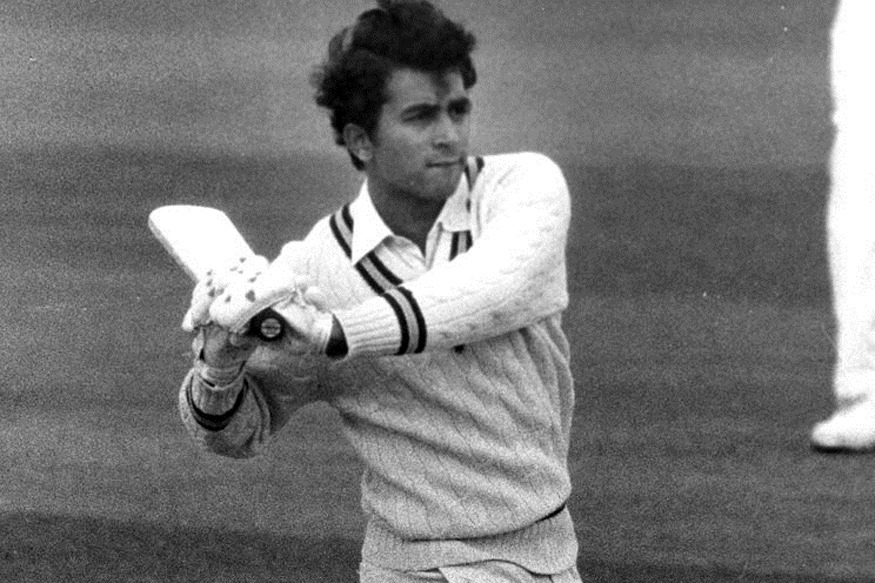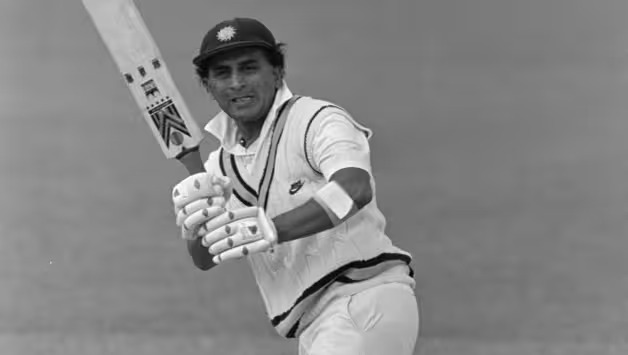I have had the privilege of speaking to Sunil Gavaskar all through my career. And I can say he has always been generous with his time. But on his birthday, it is fitting to celebrate him through his finest hour – his debut in the West Indies in 1971. With India touring the Caribbean at the moment, it is the perfect tribute to Sunny bhai on his birthday.
This interview was used in our book 1971 (with Gautam Bhattacharyya).
Q: Can you walk us through the magical winning moment in Trinidad where you effected the winning stroke?
A: Oh, it was unbelievable, even after all these years. We were chasing only 124 in the fourth innings and [Syed] Abid Ali was promoted up the order, as he was a fantastic runner. Abid would just chip and run. I thought I was pretty good as a non-striker to respond to quick singles. In Mumbai, we called this chipping, and running ‘tiffin singles’. Abid came. The singles started happening and quickly there were a few overthrows. In that desperate state, they were trying to run us out directly. It made our task easy.
Three years later in Manchester, he helped me a lot to complete my hundred. I remember taking some singles with him which would not have been possible with some other members of the team. Abid was a fantastic runner, a complete team man, a very sharp bowler, and a dangerous batsman. He could cut and pull. And Abid was a real gutsy cricketer. What a fielder at short fine leg he was! Just amazing. We talk about Eknath Solkar in glowing terms. But, trust me, Abid Ali was not too far behind.
Q: In Manchester, your 85-run partnership with him could not save India from defeat. But three years earlier, in the second Test at Port of Spain, your unbeaten 41-run stand with him had accorded India a glorious moment of history.
A : Finally it was Arthur Barrett who was trying to bowl a googly. It was too short and fell halfway down the pitch. I went back and pulled it over midwicket for a one-bounce boundary to win us the game. It was unbelievable! Then, walking back and Gary Sobers shaking hands with you – I never thought I would be within hand-shaking distance of Sir Garfield, the greatest ever! And here I was playing against a Sobers and a Rohan Kanhai. An absolute dream come true it was.
Also Read: Sunil Gavaskar and the Art of Changing Perceptions
Q: Can you walk us through what your mindset was like in the West Indies? Apparently, after scoring his double-hundred, Sardesai pointed towards you in the dressing room and predicted you would hit two hundreds in this series.
A: If I recall correctly, that he had said on arrival to the immigration officer. Subsequently, he repeated it at a party hosted by a Jamaican Indian. There again he stood up for me. Sardesai’s confidence in me was incredible. It was also quite daunting to live up to. Then, when the whole team had gathered at the CCI before the departure, Vijay Merchant, while addressing the team, mentioned me separately by saying that he expected Gavaskar to be a huge success on this tour. I did not know how to handle that. Here I am. I have not even played the Duleep Trophy and yet the chairman of the selection committee, who also happens to be one of India’s all-time best cricketers, is predicting I would be successful on the tour. It was very comforting and uplifting but unbelievable [at the same time]. Then, of course, there was the captain who had immense faith in me to have ensured my place in the touring side. But honestly it is not easy to recollect what exactly had happened fifty years ago, and I am no spring chicken.
All I can tell you is that my cricket before leaving for the West Indies was kind of a progression step by step: say, from the Bombay school [of cricket] to the west zone school; from west zone school to India school. Similarly for universities – from Bombay to All India. But here I was, only four Ranji-matches old and with no Duleep Trophy experience, going to play against West Indies. In between a step was missing and a very vital one: the Duleep Trophy. [In] Those days all the top players turned out for Duleep matches. It was quite a severe examination of your skills and temperament. That was at the back of my mind when I had left for the West Indies, [with] a little bit of uncertainty.
Q: Subsequently the world-record tally of 774 happened in your debut series. Was it a huge cross to bear?
A: There is no denying the fact that expectations had turned sky high. Till then they may have expected good performance but not so much. In a debut series such a fabulous performance was recorded only by Sir Don Bradman. So they expected something similar every time. But it was not possible to replicate it all the time.
Q: Imran Khan repeatedly said, and was echoed by others, that before you, Indians could not play fast bowling well. At some stage, did you set out to change this perception?
A: The proposition that Indians can’t play fast bowling was started by the British press. You show me a team, including England, that can play quality fast bowling. No team can master good fast bowling. Look at the success India have had of late. It is only because we have a pair of good fast bowlers. What about England against West Indies in the 80s? Did anybody ever say the English can’t play fast bowling? When Australians got hammered by West Indies, did anybody say Australian batsmen can’t handle fast bowling? I don’t think so. You can tell that this was a myth created by interested parties against India. Nobody generalised the failures of other teams in this manner.
Q: Gundappa Viswanath told us about a team culture that Wadekar introduced: every evening there used to be a session in his room where anyone could walk in. This was where juniors and seniors participated merrily. Did it help bridge the gap between generations and foster team spirit?
A: Those hotel rooms were not five stars but more like hotel rooms of old. Some of the players would sit on the sofa, some on the floor, some on the carpet. They would enjoy each other’s company. These gatherings would help enormously in team-bonding. Even when the seniors were playing cards and you were sitting on the sidelines, the topic that was invariably discussed was cricket. There was never any deviation. A junior could learn so much from those cricketing stories.
Q: Rohan, your son, had shared with us that since the Sudhir Naik incident in 1974 (Naik was accused of shoplifting a pair of socks from Marks & Spencer) you have never stepped into a Marks & Spencer outlet. Is it true?
A: Yes, in the last 46 years maybe twice or thrice. That, too, for carrying the wife’s bag (laughs). But I have never bought anything from there.
Q: Has it been a silent protest against the allegations levelled at Naik?
A: Absolutely. It was totally unfair. Sudhir was given the wrong advice to plead guilty, and that left a stain that was very hard to remove. I have known Sudhir all these years from the time we played tennis-ball cricket against each other. I felt very strongly about him. We lived nearby. I didn’t think he was ever capable of shoplifting. And after the incident I asked Colonel Adhikari to allow me to share the room with him, because I do not remember who it was, but the person said he was too embarrassed to share a room with Sudhir. I picked up a lot of calls coming to the room where the abuse started straightaway. I tried to shield him from all that.
Q: Coming back to the twin victories of West Indies and England in 1971 – did they play a part in boosting India’s confidence ahead of the wins at the MCG in ’81, the World Cup triumph in ’83 and the Benson & Hedges World Championship of Cricket win in 1985?
A: Oh, yes, in that respect the ’71 victory was huge. Mind you, after our win in Trinidad, West Indies came back very hard at us. Sobers himself was under a lot of pressure at home because he had gone to play an exhibition double-wicket game in Rhodesia. He was under a lot of stress— as a result of which he was not only bowling faster but batting magically. So, there was an increased pressure on our team to maintain the lead and win the series. Once we succeeded in doing that, it gave the whole team a lot of confidence for the English tour.
[The wins in] 1981 was also a defining moment as again there were multiple moments where the going got extremely tough. To start with, to get past the pathetic umpiring standards. In my very first year in international cricket, I have had the good fortune of touring three countries: the West Indies, England and subsequently Australia for turning out for the Rest of the World. The standard of umpiring I saw in these countries was appalling. And, more importantly, it was so biased. But for some strange reason, our media—whenever they toured— never highlighted the umpiring standards that the team was subjected to. In comparison the foreign media, be it England or Australia, acted as if they were the extra support staff of the team. I never understood the reluctance of our media to highlight the dubious umpiring standards. They seemed so shy as if it was a worry that if they wrote anything against [them], the home board would not accord them the necessary accreditation, or whatever reasons that I don’t understand.
I am not saying that you cook up stories. But what prevents you from pointing out realities? In 1981, right from the first game, the umpiring was ridiculous. Absolutely pathetic. We just managed to draw the second Test which was preceded by some terrible umpiring decisions. At the press conference, I said all those who come to India and talk about Indian umpiring are nothing but whiners and moaners. Next day, that was the headline. That time also nobody had objected to the umpiring decisions. Neither the media nor our own board. So when it came to the final Test towards the end of the match we thought we were in a very good position. Despite Australia chasing a relatively small total of 142 in the fourth innings, it wasn’t easy as the pitch had started deteriorating. So considering everything, it was a huge victory. We, at least, did not lose the series and won for the first time in Australia.
Q: Now, 1985.
A : In my view, the 1985 Indian team was probably the best ever Indian one-day side apart from the 2011 World Cup-winning team. If you were to have a match between these two sides, 2011 and my 1985 team, it would be a fantastic game of cricket.
Q: How does it feel to be associated with some of the most defining moments in Indian cricket?
A: I feel fortunate. I feel blessed that I have been around at that time. Also the fact that I could rub shoulders with some of the giants of the game both from India and outside.
Also Read: Gavaskar the Writer, Mr Methodical with the Pen, is Badly Missed





